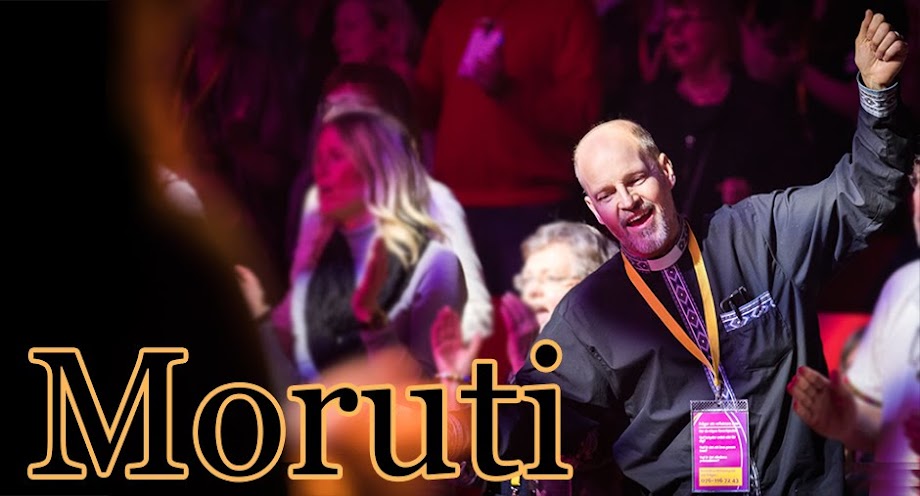On Thursday
15 February Matamela Cyril Ramaphosa was sworn in as President of the Republic
of South Africa. He succeeded Jacob Gedleyihlekisa Zuma, according to Al-Jazeera
an embattled ex-leader.
In my
understanding this is good for South Africa. But one should not be to
optimistic. Compared with Zuma, Ramaphosa is a much better leader. That is my
deep conviction. But he is still a tainted leader. He was one of the owners of
the Lonmin mine, where the Marikana massacre took place 16 August 2012. 17 mine
workers were killed. Shot by the police.
Ramaphosa
is also a very rich person. This could be an asset. He does not need
corruption. He already has enough. At the same time he is distant from the poor
and marginalized.
 |
| Ramaphosa talar vid en begravning i en luthersk kyrka. |
… grew up under strict Christian supervision as his mother was a staunch member of the Lutheran Church.
I am not
sure whether or not he himself belongs or has belonged to ELCSA. Be that as it
may, I guess that I somehow connect with him.
I have read
his State of Nation Address (SONA). Much of it is of course normal rhetoric. It
is interesting though, that he speaks firmly about land expropriation without compensation:
Guided by the resolutions of the 54th National Conference of the governing party, this approach will include the expropriation of land without compensation.
We are determined that expropriation without compensation should be implemented in a way that increases agricultural production, improves food security and ensure that the land is returned to those from whom it was taken under colonialism and apartheid.
This clear message
was sandwiched in between reconciling words. He started by stating that the
year to come will be a commemoration of Nelson Rolihlahla Mandela’s centenary.
He was born in 1918. Ramaphose said:
Guided by his example, we will use this year to reinforce our commitment to ethical behaviour and ethical leadership.
Another
icon was also born the same year:
Albertina Nontsikelelo Sisulu
Ramaphosa
continued:
We honour this son and this daughter of the African soil in a year of change, in a year of renewal, in a year of hope.
On twitter
I have seen many examples that people found hope in the speech. One tweet
comments this in a very ironic way:
He spoke
openly about how poverty levels have risen in 2015, how unemployment has gone
up and how inequality has persisted. He also admitted that the that economy has
not grown for several years.
Of course
he also spent time talking about the role of education, investment and job creation.
The latter especially with the youth in focus.
An
interesting thing was the announcement that the Government will introduce the
first national minimum wage in South Africa in 1 of May. He also announced that
… free higher education and training will be available to first year students from households with a gross combined annual income of up to R350 000.
He also
mentioned a continuing fight against HIV where the goal is set:
This year, we will take the next critical steps to eliminate HIV from our midst.
The
opposition will monitor how these promises are kept. On Times Live I heard
Julius Malema talk about this. The EFF will hold Ramaphosa accountable, said
Malema. They gave him a chance to deliver his speech. Malema said they (EFF)
want peace in the parliament.
Most
interesting will be how Ramaphosa deals with his predecessor, Zuma. Will he
(and the state institutions) hold him accountable? That is still to be seen.
Ramaphosa said:
This is the year in which we will turn the tide of corruption in our public institutions.
The criminal justice institutions have been taking initiatives that will enable us to deal effectively with corruption.
I hope that
justice really will prevail.
Ramaphosa concluded
by citing a well-known South African musician, Hugh Masekela. The song is
called: Thuma mina.
I wanna be there when the people start to turn it aroundWhen they triumph over poverty
I wanna be there when the people win the battle against AIDS
I wanna lend a hand
I wanna be there for the alcoholic
I wanna be there for the drug addict
I wanna be there for the victims of violence and abuse
I wanna lend a hand
Send me.
'Send me' in isiXhosa
and isiZulu is 'Thuma mina'. This is the watch word of the Lutheran Youth League
in ELCSA. Was this song chosen by coincidence?


No comments:
Post a Comment